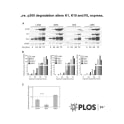We could not find the product you're looking for. Please try to search again.
6859 Reagents
Anti-ErbB3 [RTJ2]
Invented at Hammersmith Hospital, London.
Anti-ErbB3 [SGP1]
Invented at Hammersmith Hospital, London.
Anti-L1CAM [UJ181.4]
Invented by Dr JOHN KEMSHEAD at Institute Of Child Health



